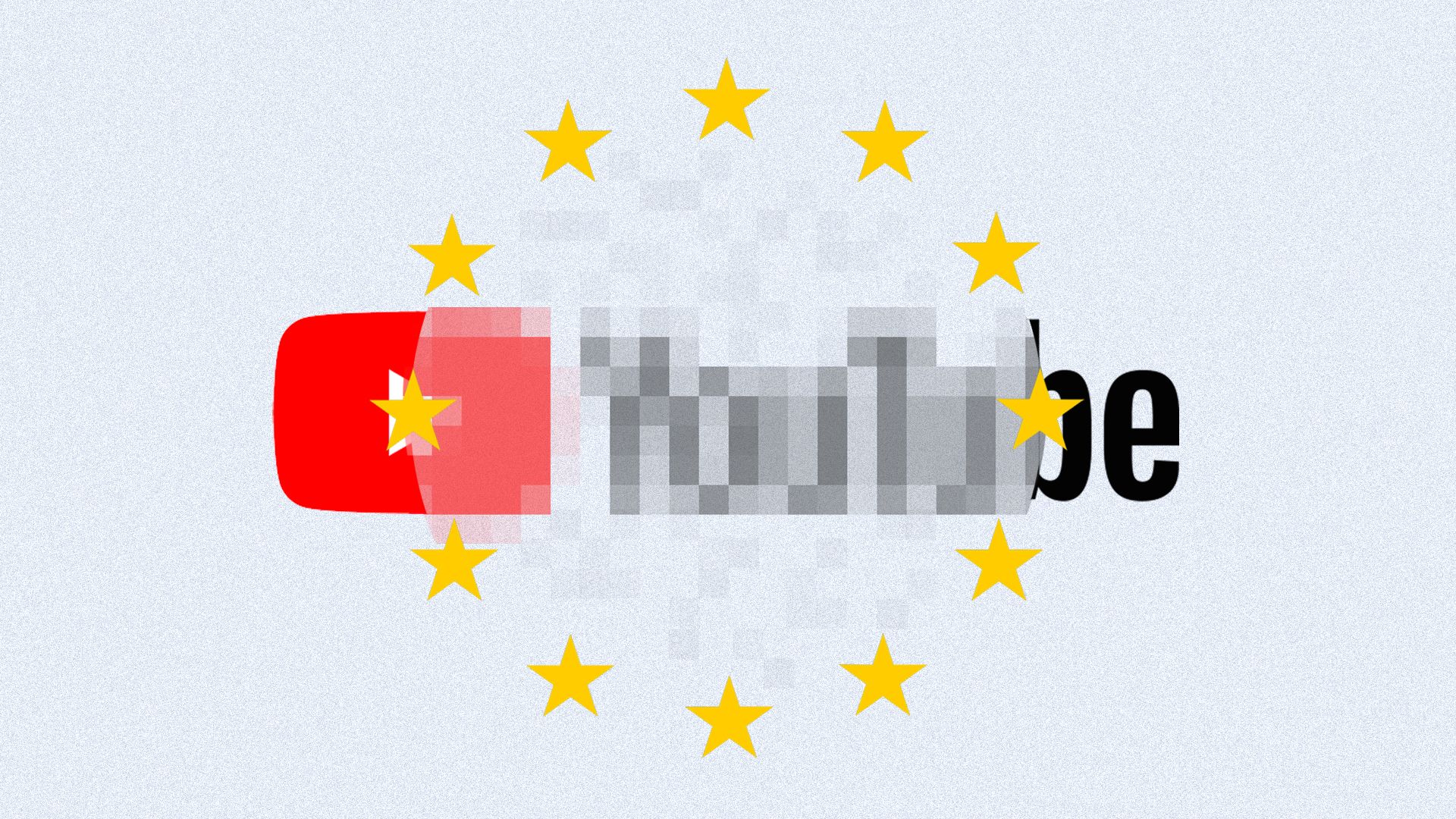YouTube's EU battle shows how hard it is to regulate social media
Add Axios as your preferred source to
see more of our stories on Google.

Illustration: Sarah Grillo/Axios
A bitter fight between YouTube and the European Union over a controversial copyright law could have major implications for how we think about balancing free speech and access with consumer freedoms here in the United States.
Why it matters: The debate in Europe is revealing that consumers may not support drastic measures that restrict their favorite social media platforms.
The Copyright Directive, which is expected to be finalized in January, includes two provisions that would devastate YouTube's business if passed in its current form:
- "The Link Tax," known formally as "Article 11," forces companies like Google and Facebook to pay publishers every time content is linked to on their platforms. Google argues it would be difficult for platforms to do that without engaging in some sort of content censorship up front.
- "The Meme Ban," known formally as "Article 13," requires user-generated content companies to take measures to prevent illegal use of copyrighted postings. YouTube argues this would force it to restrict most content from being uploaded, due to the legal risk of being responsible for copyright infringement.
Europe's creative industries, like record labels, songwriters and publishers, support the proposed Copyright Directive, which has passed five parliamentary committees and was approved by the full Parliament in September.
- Creative representatives like The International Federation of the Phonographic Industry (IFPI), argue YouTube is using scare tactics to put pressure on policymakers to help protect their profits, and that the Directive doesn't target memes.
YouTube has set up one of its most aggressive consumer-facing lobbying efforts ever to fight the law, and has managed to negotiate the language down to be less drastic.
- In a blog post to creators, YouTube CEO Susan Wojcicki asked YouTube creators to "take action immediately" and to spread the word about the bill's effects on the creative community through their own platforms on social media.
- The campaign so far has been somewhat successful. Through aggressive lobbying efforts and consumer pushback, the current bill is less drastic than what policymakers first proposed in June.
Yes, but: There's a chance consumers don't fully appreciate the societal impacts of some of these provisions. While Article 13's impacts are fairly obvious (consumers won't be able to upload some of their favorite videos), the implications of Article 11, which tackle fake news and copyright, are a little more obscure.
"They do care about their local citizenry and local coverage and that's what won’t be covered if we don't cover pay our news outlets, particularly local news."— Danielle Coffey, SVP and Counsel, News Media Alliance
Lawmakers in the United States are more open than ever to changing a provision of federal law that shields platforms from liability for the things their users post, having already weakened the protections when it comes to platforms that knowingly facilitate sex trafficking.
- Protections for platforms were built into the new North American trade agreement, which hasn't yet been ratified by Congress.
"In the U.S., theres still been a pretty strong defense for intermediary liability. I think that will continue to be upheld at least for a while. But I think there's a growing interest here in finding the right balance in having more responsibilities for platforms to make decisions around content."— Daniel Castro, VP at the Information Technology and Innovation Foundation (ITIF)
The bottom line: Restricting popular products or services for the sake of fixing other problems, like hate speech or piracy, is proving to be difficult in the EU, and suggests the U.S. will have to eventually confront similar dilemmas.
Editor's note: This piece has been clarified to include more points of view from the creative community.
